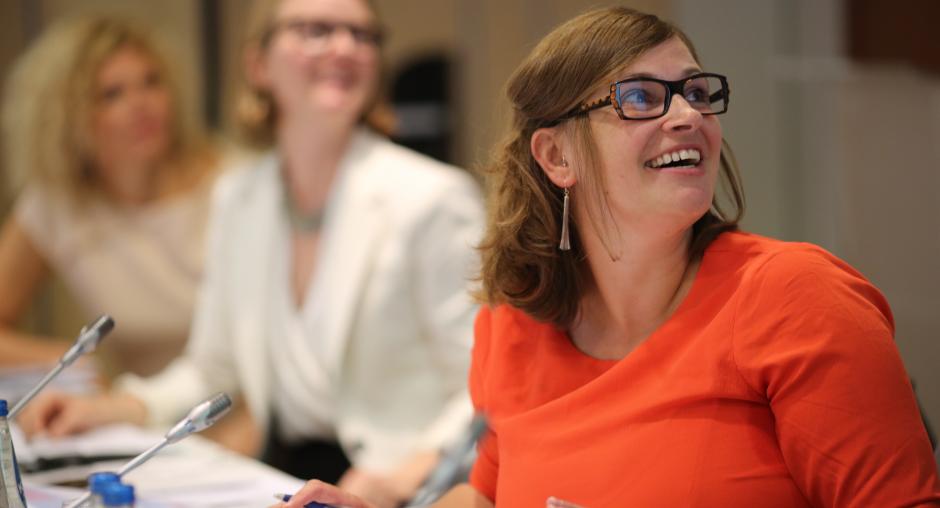Warsaw event explores tools to advance youth political participation throughout the OSCE region

New, youth-specific tools and research aimed at assisting policymakers and youth stakeholders working to enhance youth wellbeing and political engagement in the OSCE region were introduced at an event in Warsaw on 14 September 2018. Youth experts and practitioners, as well as representatives of governments and civil society organizations from OSCE participating States took part.
The event, which took place on the margins of the OSCE Human Dimension Implementation Meeting, was co-organized by the OSCE Office of Democratic Institutions and Human Rights (ODIHR) and the Consortium for Elections and Political Process Strengthening (CEPPS) represented by the International Foundation for Electoral Systems (IFES).
During the discussion, expert panelists presented findings from a recent survey on youth attitudes in Poland, Hungary, and Slovakia, highlighting trends across the three countries with regard to young peoples’ attitudes towards political participation and social identity. They also shared findings from research exploring the efficacy of pro-youth legal instruments, intra-party policies and other public measures that are increasingly employed by governments, political parties and other electoral stakeholders to encourage youth engagement.
“As the presenters at the event highlighted, there is a need for both meaningful civic education and youth-specific data. In their presentations they suggested that effective strategies for young peoples’ participation in political and public life encompass both traditional approaches and initiatives designed using current information,” said Augusta Featherston, ODIHR’s Youth Focal Point. “This, in turn, can lead to increasing trust in democratic institutions.”
The event also included a presentation of the Youth Progress Index, a collaborative project initiated in 2016 by ODIHR, Deloitte, the European Youth Forum, the International Institute for Democracy and Electoral Assistance (International IDEA) and the Social Progress Imperative. The goal of the initiative is to provide reliable data across a wide spectrum of indicators on how countries are progressing in terms of offering favourable conditions to their young people. The index is intended to provide an evidence base for youth-friendly policymaking for all youth stakeholders, including youth themselves, policymakers and business leaders.
“It is our sincere hope that the Youth Progress Index is used to inform policy decisions with respect to young people,” said John Lisney, Policy and Advocacy Coordinator at the European Youth Forum.